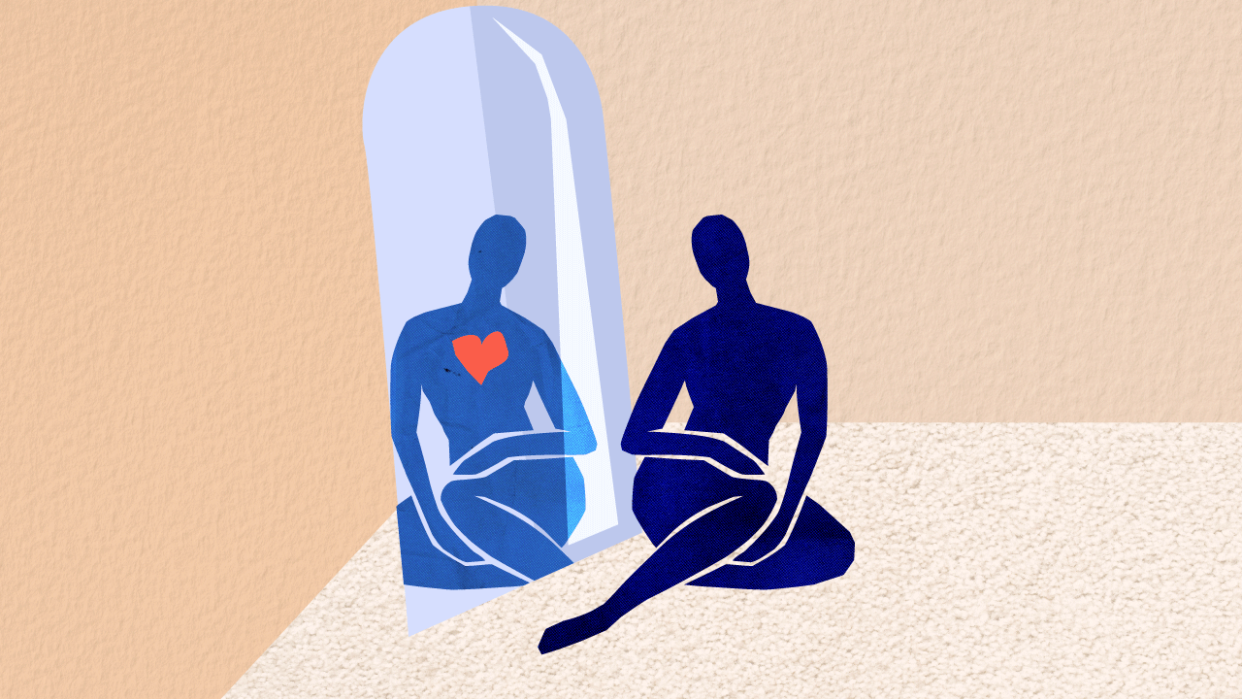Why you shouldn’t freak out about weight gain in your early 20s

The first few years out of college are a time of major change. It might be your first time working a full-time job or living independently; you may also be in a new place without the big network of peers and activities that college provides.
For several reasons, you might also notice that your body changes as well. This might include some weight gain. While your first instinct might be to do everything you can to lose it, experts say weight gain isn’t something to panic about, and turning to diets and extreme exercise routines can cause trouble. So, let’s look at the facts around weight gain and adulthood.
It takes time to adjust to an adult lifestyle
While not everyone gains weight after college, it’s a pretty common thing. Data from the Centers of Disease Control shows that, on average, women are about 9 pounds heavier in their 20s than they were when they were 19, while men are 12 pounds heavier.
Weight is complex and has many contributing factors, but a shift in lifestyle certainly plays a role in weight gain during this time. “[For many people], this is the first time they've had to be more self-reliant when it comes to eating and preparing food, and that's actually really difficult,” says Ariel Johnston, R.D., a dietitian at The Tasty Balance in Kansas City, Missouri.
So, in those first years you might eat out or get delivery more often, which can mean a slightly higher calorie intake and more difficult weight loss. But Johnston says this isn’t inherently bad — convenient meals take some of the stress off and leave you more time to do other things.
There’s also the fact that over 80% of jobs in the United States are sedentary, according to the American Heart Association, which means they entail sitting for at least 75% of the day. When you shift from a relatively active lifestyle as a college student to a more sedentary one, it makes sense that you might gain a bit of weight. Finding time for physical activity is hard with a busy schedule. The added stress of full-time work and adult responsibilities can play a role as well.
It’s normal to feel anxious about weight gain, but going on a diet can backfire
“Many people experience anxiety about weight gain and respond to that anxiety by trying to lose weight through dieting,” says Breese Annable, Psy.D., CEDS-S, a psychologist and eating disorder specialist based in Asheville, North Carolina. But doing so can be problematic for a number of reasons.
“First, [trying to change] your body's weight, shape and size is often based on the premise that there is something wrong with your body in the first place and that it needs to change,” says Annable, which isn’t necessarily true. Weight alone isn’t an indicator of how healthy you are, and dieting in an attempt to lose weight won’t make you healthier.
“Additionally, dieting can sometimes be a factor in leading to eating disorder behaviors, which can have serious physical and psychological consequences,” says Annable, adding that eating disorders can be dangerous.
Johnston also warns against dieting. “Yes, people can lose weight [on a diet], but most regain that weight within five years,” she says. “This can set someone up for a cycle of yo-yo dieting, which is actually harder on your health and has negative cardiovascular effects.”
Instead of trying to lose weight, focus on shifting your mindset
In our culture, gaining weight or being in a larger body is often seen as a moral failure. But that’s just not true, and the sooner you can untangle your worth from your weight, the better. “I encourage people to start from a place of self-compassion,” Johnston says. “Weight gain doesn't mean you are a bad person or have no willpower.”
Keep reminding yourself that your value doesn’t lie in what your body looks like. “Take some time to reflect on your values — what's most important in your life and what you deeply care about — and see how your body shape and size does not impact your ability to align with those values,” advises Annable.
It’s also helpful to be objective and put weight gain into context. Annable notes that, as life changes frequently, it’s understandable that our bodies will change as well. “This stance sets the stage for a relationship of acceptance and compassion with our bodies,” she says.
That said, changing your relationship with your body can be easier said than done, especially if you’re surrounded by people who are dieting themselves or who talk negatively about their own appearance.
“If that's happening, seek out people who model body acceptance as a way of countering those messages,” says Annable. “If those people aren't in your social circles, find them on social media or podcasts.” Fill your feeds with people who celebrate all bodies, and unfollow those who trigger you to compare or feel bad about yourself.
Instead of dieting, learn to eat in a way that feels good.
Your early 20s can actually be a great time to establish a good relationship with food and eating habits, since you’re settling into new habits and routines across the board. “Find ways of healthy eating and moving your body that intuitively bring joy or have other benefits, such as improved energy, connection with others, and stress management, rather than using food or exercise to control your body,” says Annable.
Ultimately, learning to eat in a way that feels good for you — which no one else can define — is the most sustainable way to support your health.
View the original article at Chegg Life and signup for the Chegg Life Newsletter
Related...

